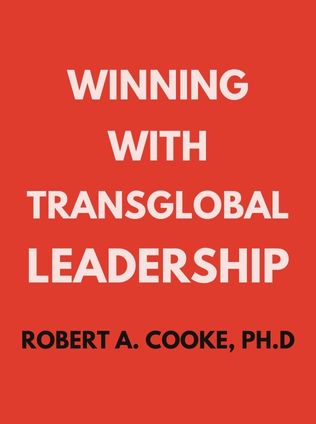
Winning with Transglobal Leadership
How to Find and Develop Top Global Talent to Build World-Class Organizations
By Robert A. Cooke, Ph.D.,
Published 04/2012
About the Author
Linda D. Sharkey, Ph.D., is a distinguished leader in the field of human resources and organizational development. A founding member of the Marshall Goldsmith Group, she has been recognized for her innovative work, which was named a "best practice" by former GE CEO Jack Welch. Sharkey has held senior HR executive positions at Hewlett-Packard and GE Capital, where she significantly contributed to the advancement of leadership development practices.
Nazneen Razi, Ph.D., serves as the Senior Vice President and Chief Human Resources Officer for Health Care Service Corporation. With extensive experience leading HR organizations in global and multinational companies, Razi brings a wealth of knowledge in managing diverse talent across various regions.
Robert A. Cooke, Ph.D., is the CEO of Human Synergistics and an emeritus associate professor at the University of Illinois at Chicago. He is well-known for his development of widely used surveys in organizational research and development, which have provided valuable insights into effective leadership and organizational culture.
Peter Barge has held CEO and leadership positions across three continents in a variety of industries. His global experience and strategic acumen have made him a valuable contributor to the development of leadership practices that transcend cultural and geographical boundaries.
Main Idea
"Winning with Transglobal Leadership" provides a comprehensive framework for developing leaders who can excel in the global marketplace. The book addresses the unique challenges of operating in diverse cultural, legal, and social environments and emphasizes the importance of developing specific behavioral dimensions to succeed as a global leader. Through extensive research, interviews, and decades of experience, the authors offer practical guidance on measuring and evaluating an organization's capacity to compete globally and developing the leaders necessary for success.
Table of Contents
- The Current State of Global Leadership Talent
- Why Global Talent Is So Important, Yet in Short Supply
- The Foundation of the Transglobal Leader: The Six Facets of Intelligence
- The Behavioral Dimensions of Transglobal Leaders: What Sets Them Apart?
- Traditional Diversity Versus Transglobal Diversity: The New Order and Debate
- Assessing and Developing Your Transglobal Leadership
- Best Practices to Close the Gaps
The Current State of Global Leadership Talent
Survival in a New Global World: Are You Ready?
Corporations are constantly scouting for successful leaders who can effectively integrate across countries, cultures, and geographies. The complexity of globalization requires leaders who can navigate diverse legal, cultural, political, and social environments. However, many leaders fall into classic syndromes that derail their success:
- The Egocentric Syndrome: "Things can be done only the way the home country does them."
- The Language Syndrome: "The best leaders speak my language. If I can understand them, they must be good."
- The Western Syndrome: "We're from the West, and we have been building and developing businesses longer than you, so we are smarter at it."
- The Cultural Assumption Syndrome: "We assume we know the other party's culture and that what is relevant in our culture is relevant elsewhere."
Richard Solomons, CEO of IHG, captures the essence of successful global leadership:
"Wherever you are assigned or whatever new role or environment you find yourself in, your first priority is to be inquisitive to succeed. It is simply no good going into a new role thinking you know how the world works and you don't."
Interconnectivity in the New Business World
The economic meltdown that started in the United States in 2008 impacted nearly every part of the global economy. Similarly, the euro zone economic crisis and the 2011 tsunami in Japan disrupted global supply chains, highlighting the interconnectedness of the global economy. This interdependence, coupled with the rapid pace of technological advancement, places a premium on leaders who can manage these complexities effectively.
According to the authors, the real key to success in the global arena is not just technology, cash reserves, or business fundamentals, but the people who lead and manage these resources.
Why Global Talent Is So Important, Yet in Short Supply
The demands on leaders have evolved dramatically due to globalization, the erosion of trust, and the complexities of modern life. Successful global leaders must possess a unique set of traits that enable them to navigate these challenges effectively. However, there is a shortage of such leaders due to several reasons:
Sign up for FREE and get access to 1,400+ books summaries.
You May Also Like
The Subtle Art of Not Giving a F*ck
A Counterintuitive Approach to Living a Good Life
By Mark MansonRich Dad Poor Dad
What the Rich Teach Their Kids About Money - That the Poor and Middle Class Do Not!
By Robert T. KiyosakiHow To Win Friends and Influence People
The All-Time Classic Manual Of People Skills
By Dale CarnegieQuiet: The Power of Introverts
The Power of Introverts in a World That Can't Stop Talking
By Susan Cain



















